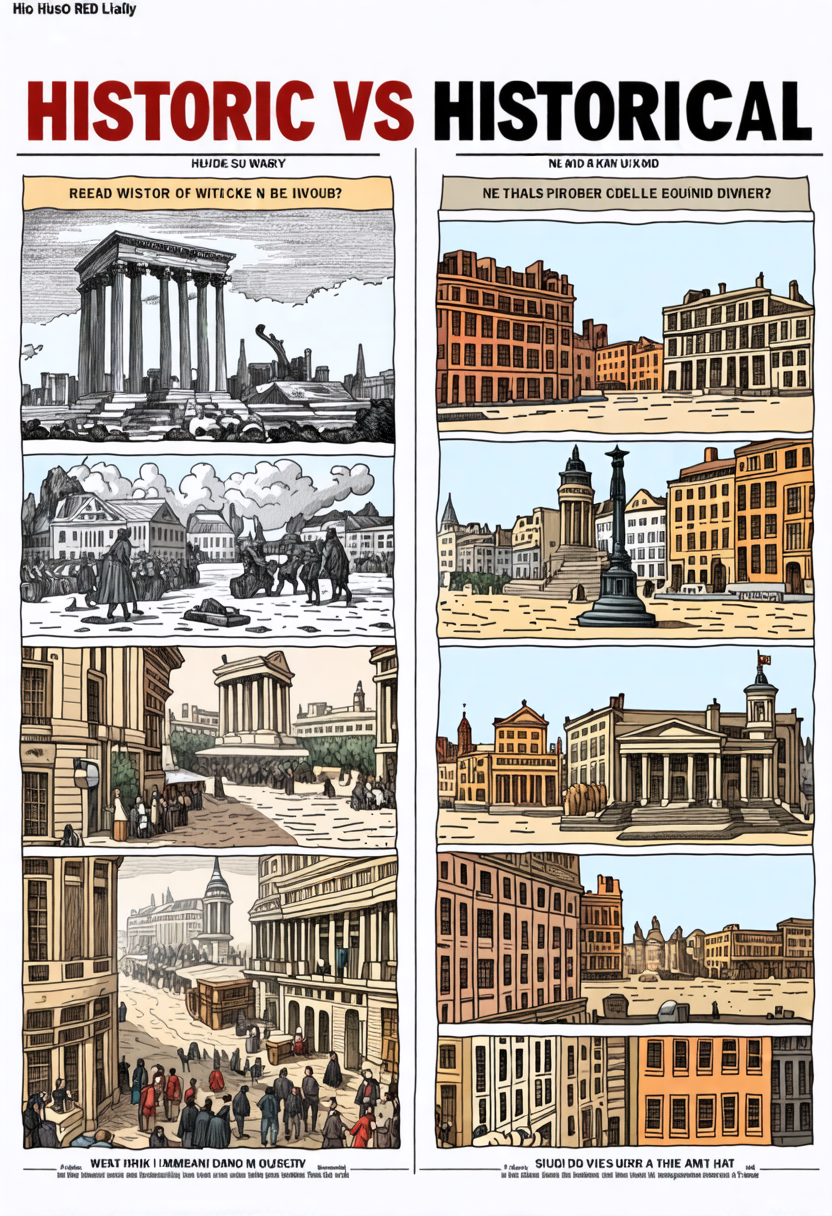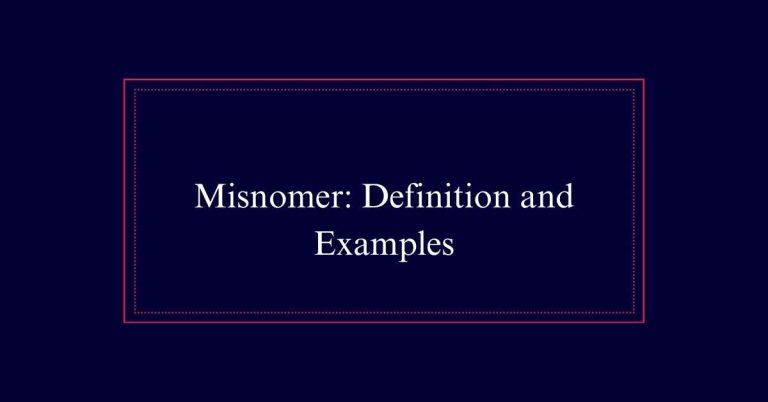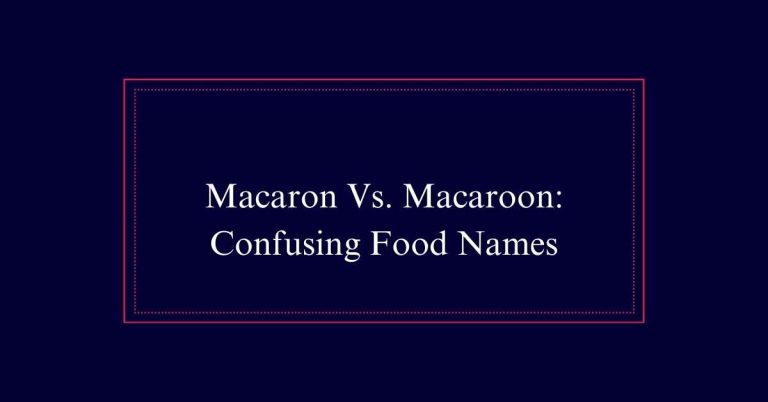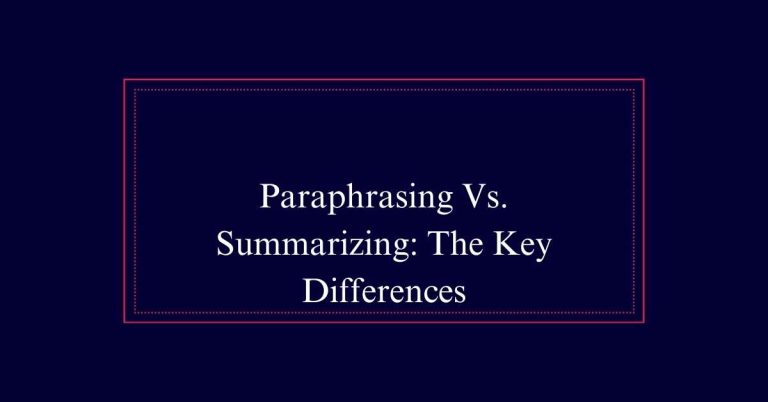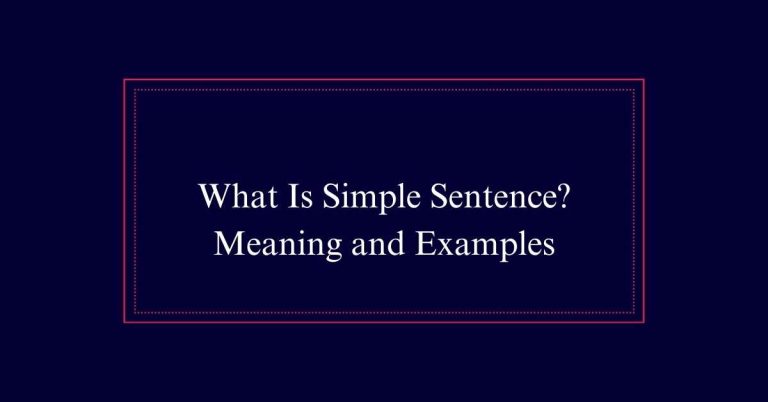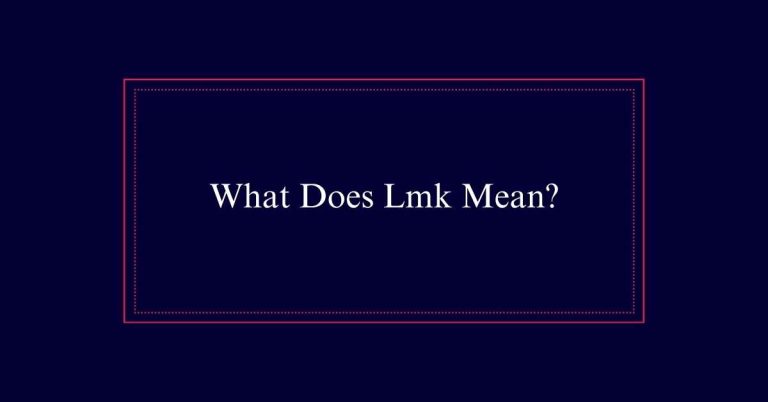Historic Vs. Historical
To choose between ‘historic’ and ‘historical,’ consider the context. Use ‘historic’ for significant events, places, or people with lasting impact, like the signing of the Declaration of Independence. Use ‘historical’ for anything related to the past, such as ‘historical research’ or ‘historical analysis.’
Definitions of Historic and Historical
The terms ‘historic’ and ‘historical’ both relate to past events but have distinct meanings and applications.
‘Historic’ refers to people, places, or events that hold significant importance in history. For example, the Battle of Hastings is a historic event due to its lasting impact.
‘Historical,’ on the other hand, is used more broadly for anything related to the past. It doesn’t necessarily imply significance. For instance, a historical society focuses on general past events and records.
Proper Usage of Historic
When evaluating the proper usage of ‘historic,’ it is essential to take into account the significance and impact of the event or place in question. The term ‘historic’ should be reserved for instances that have a notable and lasting impact on history. Using ‘historic’ properly emphasizes the importance and uniqueness of the subject.
Events like the signing of the Declaration of Independence are historic.
Major battles that changed the course of history are historic.
Buildings recognized as National Historic Landmarks are historic.
Significant cultural milestones, such as the first moon landing, are historic.
Revolutionary inventions that transformed industries are historic.
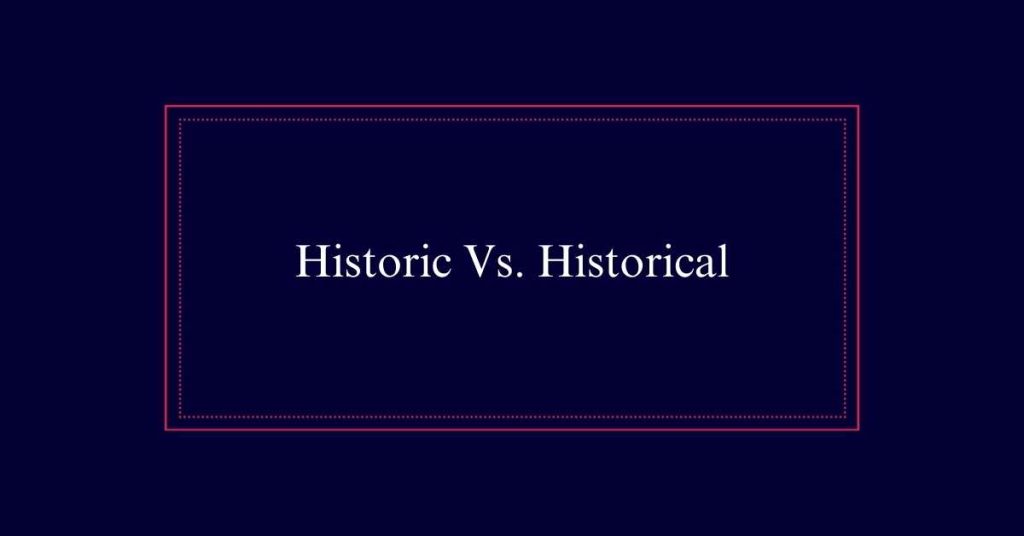
Proper Usage of Historical
Comprehending the proper usage of ‘historical’ guarantees accurate references to general past events and contexts. ‘Historical’ is employed when discussing any topic related to the past, without implying notable significance.
For example, ‘historical records’ refer to documents from any time period, not necessarily those of great importance. It is also used in contexts like ‘historical research’ or ‘historical analysis,’ where the focus is on studying past events broadly.
Unlike ‘historic,’ ‘historical’ does not denote exceptional prominence. Correct usage of ‘historical’ ensures clarity when the intent is to discuss past events in a general sense.
Examples of Historic
Understanding the proper usage of ‘historical’ lays the groundwork for recognizing when to use ‘historic’ for events or places of notable significance. ‘Historic’ is specifically reserved for moments, locations, or figures that have left a lasting impact on history.
Here are some key examples:
- The Battle of Hastings: This historic event in 1066 greatly altered the course of English history.
- The signing of the Declaration of Independence: A historic moment that marked the birth of the United States.
- The Moon Landing: A historic achievement in 1969 that showcased human space exploration.
- The fall of the Berlin Wall: A historic event symbolizing the end of the Cold War.
- The Great Fire of London: A historic disaster in 1666 that led to significant urban redevelopment.
Examples of Historical
Historical references can provide a broader understanding of past events, people, and places without emphasizing their significance.
For instance, Alda Clark founded the historical society in honor of her late husband. This society collects and preserves general historical records.
Scientists have also reconstructed Arctic sea ice extent using historical records. These documents offer insights into climate patterns without focusing on landmark moments.
Various news outlets regularly report on historical events and landmarks, offering context to current affairs. These examples showcase how ‘historical’ is used to describe general past occurrences. It helps paint a complete picture of our history without implying any particular event’s importance.
Key Differences Explained
To grasp the distinction between historic and historical, it is essential to recognize the specific contexts in which each term is used. ‘Historic’ refers to events or places that have a significant impact on history. In contrast, ‘historical’ is a broader term used for anything related to the past without implying prominence.
- Historic: Used for notable events or landmarks with a significant impact on history.
- Historical: Applies to general references or contexts related to the past.
- Context: The importance and impact of the subject determine the correct usage.
- Precision: Using the right term enhances clarity and meaning.
- Misuse: Incorrect usage can lead to confusion and misinterpretation.
Significance and Impact
Why is the distinction between historic and historical so important for accurate communication?
The significance lies in the precision of conveying the importance of events or places. ‘Historic’ refers to something with a notable impact on history, like the signing of the Declaration of Independence. This term emphasizes the event’s prominence and its lasting influence.
On the other hand, ‘historical’ pertains to anything related to the past, without necessarily implying significance. For instance, a ‘historical document’ might not be groundbreaking but still offers insight into past eras.
Accurate usage of these terms guarantees clarity and helps the audience understand the magnitude and context of the subject being discussed.
Common Misuses
Misusing ‘historic’ and ‘historical’ can lead to confusion and misinterpretation of the subject’s significance. It is important to understand the differences to maintain accuracy in communication.
Common misuses include:
- Using ‘historic’ for general past references, which diminishes the term’s weight.
- Employing ‘historical’ for events or places of notable historical impact, which lessens their recognized importance.
- Interchanging the terms without considering the context, rendering the narrative vague.
- Referring to a significant event as ‘historical’, potentially underplaying its prominence.
- Describing ordinary occurrences as ‘historic’, exaggerating their importance.
Avoiding Misinterpretations
Proper usage of ‘historic’ and ‘historical’ is crucial to prevent misinterpretations in historical narratives. Using ‘historic’ for significant events or places guarantees that the reader understands their notable impact on history.
Conversely, ‘historical’ should be used for general references to people, places, and events from the past. This distinction is vital for maintaining the accuracy and credibility of historical accounts. Misusing these terms can lead to confusion and diminish the intended message.
For instance, calling a general past event ‘historic’ suggests unwarranted significance. By understanding and applying the correct term appropriately, one can enhance the clarity and precision of historical communication, ensuring that important details are accurately conveyed and understood.
Tips for Correct Usage
To guarantee clarity and precision in historical writing, there are several tips to help you use ‘historic’ and ‘historical’ correctly. Understanding the distinction between these terms can enhance your communication and prevent misinterpretations.
- Historic: Use this term for events, places, or people with significant historical impact.
- Historical: Apply this term for general references to the past.
- Context: Always consider the context of your writing to determine the appropriate term.
- Consult Resources: Refer to language guides or experts when in doubt.
- Proofread: Review your work to make sure the correct term is used, enhancing accuracy and credibility.
